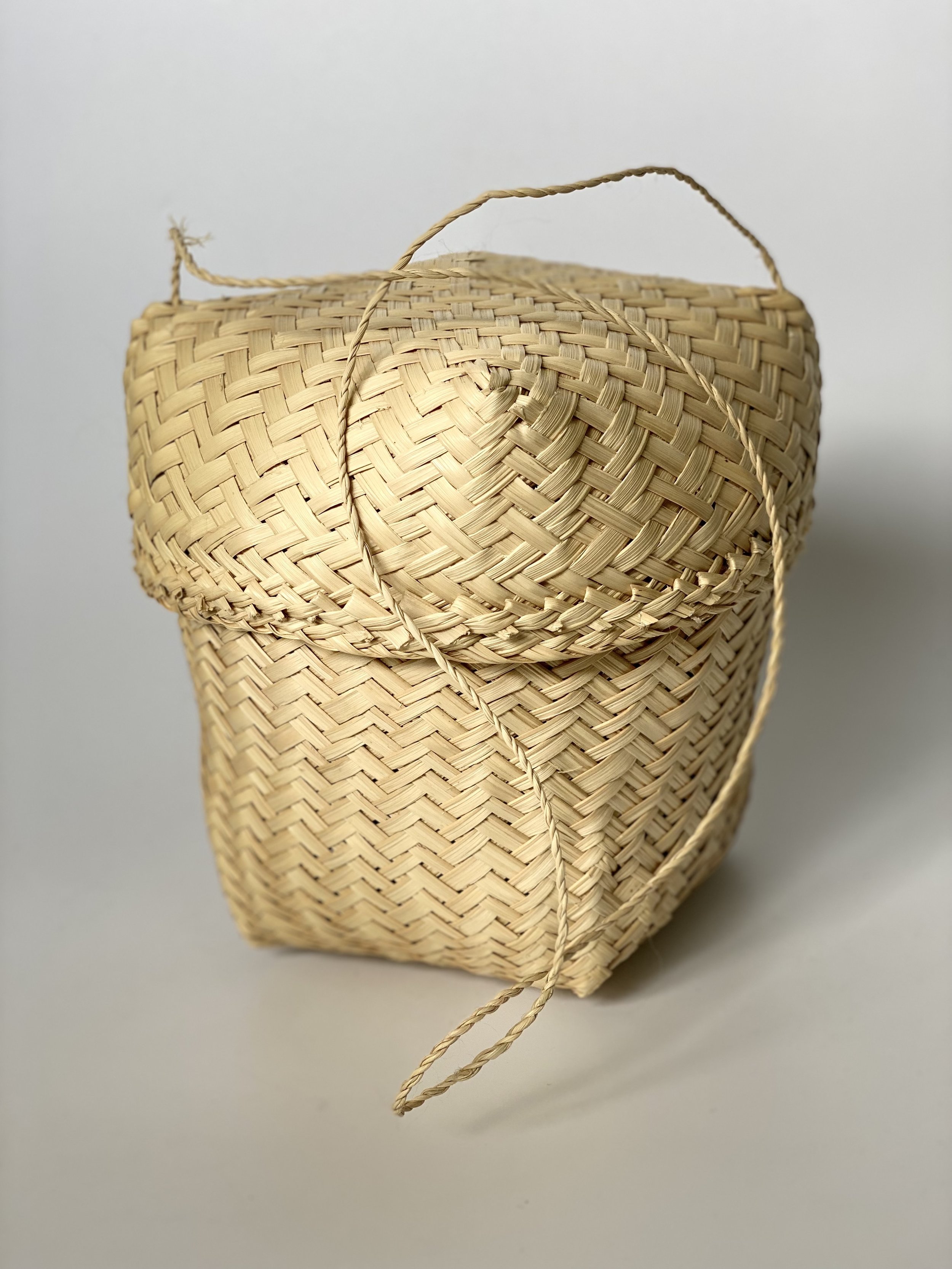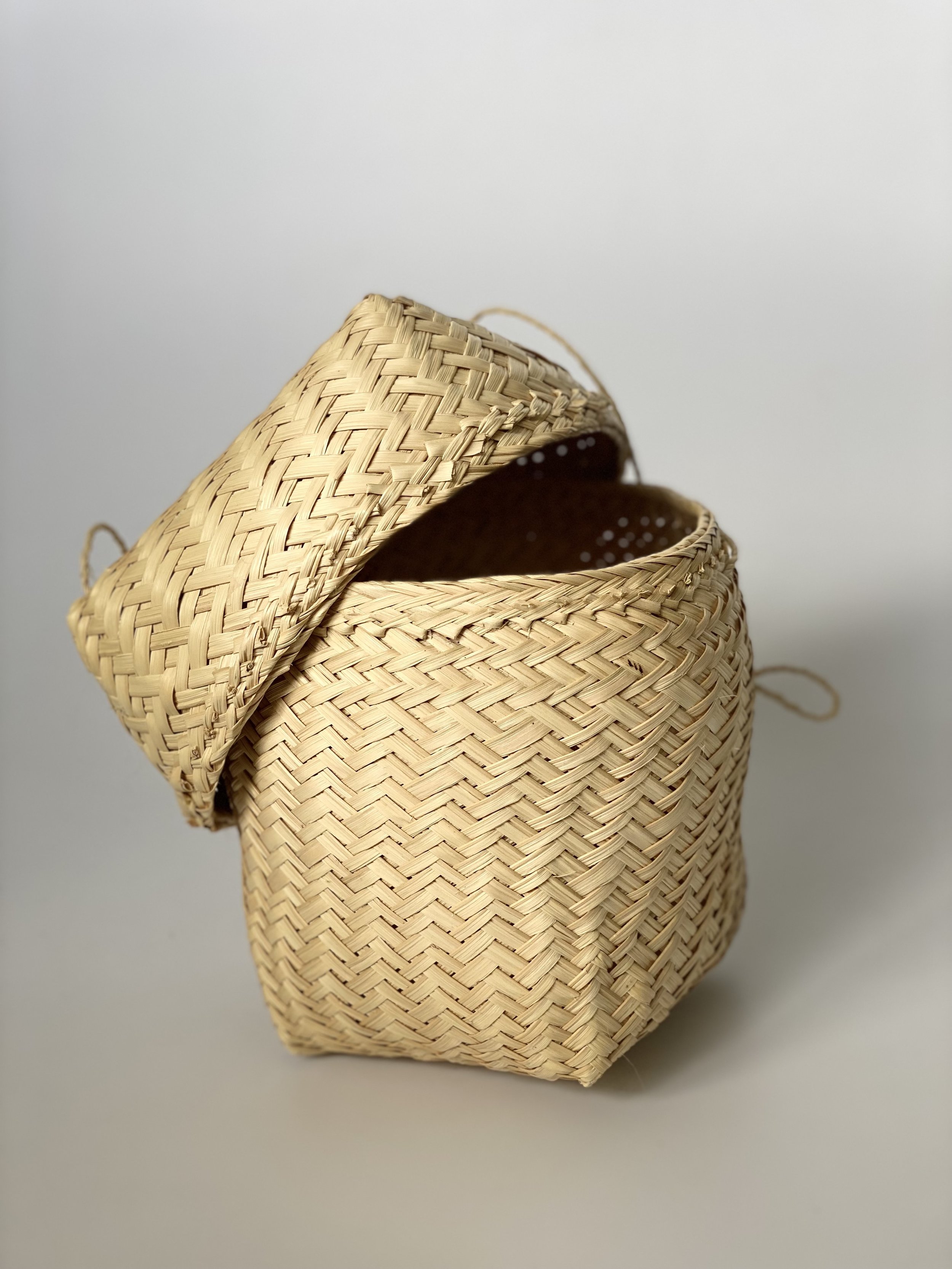Nitih Paiter Suruí Purse
The Nitih purse is made from tucum or babassu fiber, produced by the Suruí indigenous women. Used in their daily life, they have the function of storing food, seeds, small adornments and personal objects.
The Nitih is delicate and super elaborate braids from techniques passed on from generation to generation. The names given to the baskets vary according to the technique used to produce them.
The Suruí people call themselves Paiter, which in their language means “real people, ourselves”. Currently, the Paiter territory is located between the states of Rondônia and Mato Grosso, central region of Brazil.
The Nitih purse is made from tucum or babassu fiber, produced by the Suruí indigenous women. Used in their daily life, they have the function of storing food, seeds, small adornments and personal objects.
The Nitih is delicate and super elaborate braids from techniques passed on from generation to generation. The names given to the baskets vary according to the technique used to produce them.
The Suruí people call themselves Paiter, which in their language means “real people, ourselves”. Currently, the Paiter territory is located between the states of Rondônia and Mato Grosso, central region of Brazil.
The Nitih purse is made from tucum or babassu fiber, produced by the Suruí indigenous women. Used in their daily life, they have the function of storing food, seeds, small adornments and personal objects.
The Nitih is delicate and super elaborate braids from techniques passed on from generation to generation. The names given to the baskets vary according to the technique used to produce them.
The Suruí people call themselves Paiter, which in their language means “real people, ourselves”. Currently, the Paiter territory is located between the states of Rondônia and Mato Grosso, central region of Brazil.
Dimensions:
Purse Small: 7"L x 7"W x 8"H
Purse Large: 8.5"L x 8.5"W x 9"H
Care Instructions
Indigenous arts are made out of natural materials, and therefore require great tending and care. Please keep the pieces in a dry place and avoid long periods of sun exposure, especially for the art that contains colors in it. Remember that the stalk and fiber from plants tend to soften overtime and gain new shape as we wear them!
Enjoy your indigenous art and contact us if you have any questions!






